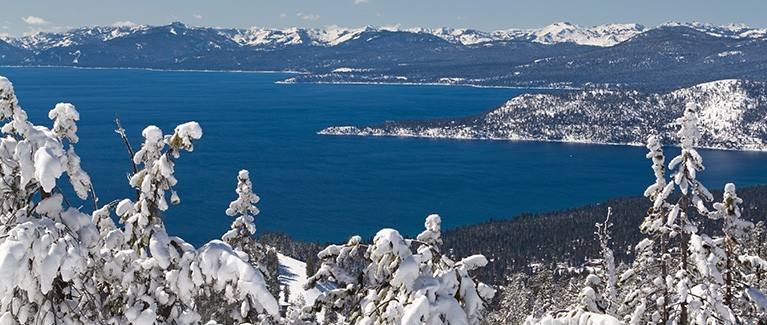Winterization

Winterize to Avoid Frozen Pipes
Every winter homeowners face the damage and expense of frozen water pipes. Please remember to winterize your property BEFORE the cold weather sets in.
- When leaving town, shut off water at your customer shut-off valve (CSV), unless you have hydronic heat or other unusual conditions. Make sure your CSV is easy to access. Call (775) 832-1203 if you need water turned off at the meter. Do not turn off the IVGID water meter: there is a fine for tampering.
- If your water is on, set thermostat to 55 degrees.
- Detach hoses and sprinklers from hose bibs.
- Close vents and other openings that allow cold air to reach plumbing under the house.
- Shut off, drain and remove backflow devices on irrigation systems. Store backflow devices inside to prevent damage.
- Post written directions for water shutoff in home for emergency situations. Post emergency contact information for property management or homeowner association personnel.
Irrigation System Shut-down
Your first steps will be to shut off and drain the irrigation system. It only takes a few minutes and can save hundreds of dollars in repair costs and water bills.
Locate the main irrigation valve and drain - they may be in a vertical plastic pipe or in your green irrigation box.
- First, use a sprinkler key to close the main irrigation valve by turning it to the right.
- Then using the same key, open the drain by turning it to the left.
Locate the backflow device. It’s a good idea to remove your backflow device to prevent damage due to freezing temperatures.
- Turn both flat handles 90 degrees to the closed position.
- Using a flat head screw driver, turn both “test cock” screws 90 degrees (in either direction) to drain the device.
- Now turn both flat handles halfway back to original position so that they are at a 45 degree angle. This will prevent water from being trapped in the device.
Turn your irrigation controller to the “off” position. All your watering times and data will be saved. It is always a good idea to check your water meter to make sure that everything has been shut off properly. If your meter shows usage, you should go back and check your work.
Please note that not every home will have all of these devices and, therefore, your steps may vary.
Next you will want to disconnect and drain any outdoor hoses. This will prevent any burst pipes due to freezing temperatures.
Indoors
It is best to consult a licensed plumber when winterizing a home indoors. Here are a few of our recommendations:
- Insulate pipes or faucets in unheated areas (garage, crawl space). Appropriate pipe insulating materials can be purchased at local hardware or building supply stores.
- Seal off access doors, air vents and cracks. Be sure not to plug air vents that the furnace or water heater need for safe operation.
- Indoor temperatures should be kept above 55 degrees.
- Allow warm air to circulate under the sink by leaving the cabinet doors open on colder days.
If you are leaving the property for a period of time, turn the CSV off to stop the water supply to the house. It is recommended that all properties have a Customer Service Valve (CSV), installed past the water meter that is easy to access. You may want to check with a licensed contractor to verify any additional systems hooked up to your water supply will function properly once the CSV is shut-off. If you do not have a CSV seasonal water turn off requests can be made by contacting our office. There is a service call charge, at the time the meter is turned off and this request requires 48-hours notice. A fine for meter tampering may be charged if the meter is turned on/off without a service call. It is the homeowner’s responsibility to make sure the meter is accessible or additional charges may be incurred to get access to the meter. It is also important to leave the thermostat at 55 degrees or above when you are away to prevent freezing of internal pipes. Don’t run the water in order to keep pipes from freezing. This is a costly waste of water and can cause water damage under certain circumstances. On irrigation systems it is important to shut off and drain the system, detach hoses from hose bibbs and remove backflow devices and store them inside.
Just In Case
- Know the location of your master water shut-off valve. In many homes it’s where the water line enters the house from the street. If a pipe bursts anywhere in the house, this valve turns off all the water and will prevent damage inside the home.
- Always have a plumber’s telephone number handy just in case you discover a broken or frozen pipe. In the event of a broken pipe, call Public Works at (775) 832-1203 24 hours a day, seven days a week.